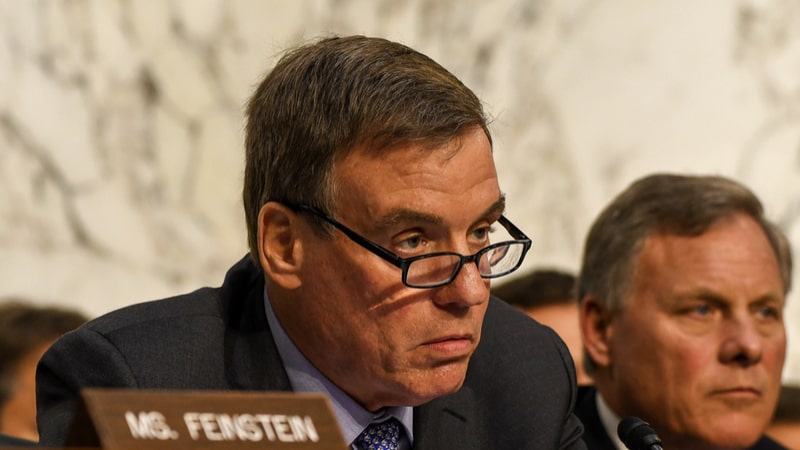
Sen. Mark Warner, D-Va., ranking member of the Senate Intelligence Committee, said today that the threat posed by Chinese government-supported network equipment makers including Huawei to the global 5G communications ecosystem is unprecedented. One solution to displace Huawei equipment from communications networks, the senator said, may be government-industry cooperation to make cheaper communications gear available to carriers.
“We have never had this kind of threat … where China’s goal is to be the tech leader – and to set the rules – for the world” on multiple technology fronts including 5G communications networks and quantum computing technologies, Sen. Warner said at CISA’s 2nd Annual National Cybersecurity Summit on Sept. 19. “We’ve been caught off guard,” he said.
The senator said that the U.S. government has generally favored letting the private sector choose its suppliers, but that the 5G threat from Chinese-made equipment may change that equation. “Our traditional laissez faire attitude may not work here,” he said, because Huawei provides network equipment around the world at very low prices in order to gain market share.
In order to make less expensive – and in theory more secure – network equipment available to service providers, Sen. Warner said “it will require active engagement between our government and a supplier.”
CISA Director Christopher Krebs, speaking at the same event, seemed to take that notion one step further by stating the government has determined that while large U.S. wireless carriers seem to not rely on Huawei equipment, some of the smaller rural carriers do employ Chinese equipment. “How do we solve for this,” he asked, and then mentioned talks with Congress and the Federal Communications Commission about promoting a “flash cut,” or “rip and replace” of Huawei equipment from existing networks. He did not elaborate on how such a plan might come to fruition.
Responding to criticism that Huawei’s allegedly nefarious intent to spy for the Chinese government via 5G network hacking has not been proven, Sen. Warner said that perhaps such activity has not yet taken place, but that it easily could through network software updates by Huawei.
“What is China trying to do, hack the world or run the world?” Krebs asked. “If you do business with China, you are a target,” he said.
Elsewhere during his remarks, Sen. Warner confirmed that he and other senators had dinner with Facebook CEO Mark Zuckerberg on Wednesday night to discuss data privacy issues, among others.
According to Warner, Zuckerberg “said the right things” about “accepting appropriate regulation” for the social media sector, but added, “time will tell.” The senator also warned that “when we get around to regulation,” companies like Facebook might not get as good a deal as what might have been available from legislation crafted 18 months ago.
Krebs said he thought it was a good sign that Facebook has hired civil liberties and cybersecurity talent from Washington and elsewhere, because in the security area, “this won’t be an area where doing nothing will do.”
Speaking about cyber threats from Iran, Krebs said he was “not prepared to say” whether those threats had increased since CISA issued a warning in June about spear phishing and other attack threats from Iran. “That remains,” he said of the June threat warning, adding “it remains a very active space.”
